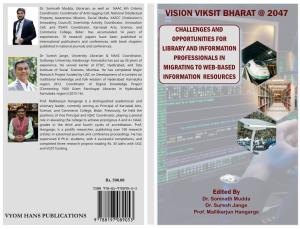Transforming University Libraries With Ai: A New Era Of Information Management
Synopsis
University libraries are at the forefront of the digital transformation, leveraging artificial intelligence (AI) to enhance knowledge access, curation, and dissemination. AI technologies, including machine learning and natural language processing, are revolutionizing library operations by automating tasks such as cataloging, metadata generation, and providing personalized recommendations. These innovations not only improve efficiency but also enable the analysis of large datasets, supporting academic research and breakthroughs. While the adoption of AI offers numerous benefits, it also presents challenges, including financial constraints, the need for specialized training, and data security concerns. Despite these obstacles, AI is poised to redefine the role of university libraries, making them more agile, responsive, and user-centric. This shift enables libraries to better support the evolving needs of students, faculty, and researchers. As AI continues to advance, it will play an essential role in fostering academic excellence, innovation, and the preservation of knowledge in the digital age. The future of university libraries lies in their ability to integrate AI technologies, ensuring their continued relevance and impact in an increasingly complex and interconnected academic environment.
Downloads
Pages
Published
Categories
License

This work is licensed under a Creative Commons Attribution-NonCommercial 4.0 International License.




